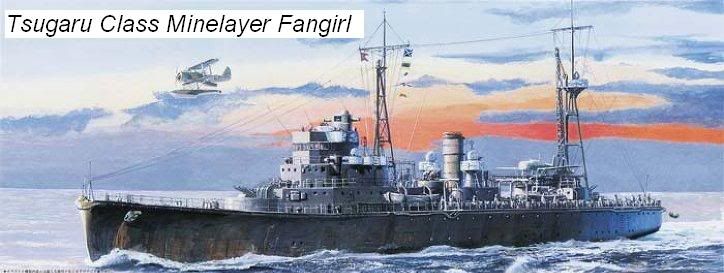Your counsel is the counsel of despair and ineptitude because it puts the locus of control externally. Once humans have an external locus of control they begin believing that since they can't control the outcome of events they are at the mercy of die rolls and that rapidly translates into sloppiness as they no longer take every pain to ensure that their plans are formulated to have maximum success. After all, why put in all that effort if the die rolls will determine whether you succeed or fail?
If you want real world examples for this just read about all the headaches US and other trainers have had with the Iraqi and Afghani armies in recent years. Those two nations ( and others ) had a deeply set belief that insh'allah god will take care of the details and that things will turn out as s/he/it wishes. That external locus of control led to individuals and units not tightening up their procedures etc in a manner which was often deeply dangerous. Go read the reports from the field and you'll find ample evidence of the effect of external locii of control in real life military situations.
Once you have an external locus of control you often stop trying to improve since your actions have minimal effect anyway and, IMO, anything which thus preaches of the external locus of control is the counsel of despair and ineptitude.
As to you being inept.... Not at all. I was quite precise in what I said. You imputed meaning to it which wasn't there. If I had intended to say you were inept I would have said something rather straight-forward along the lines of "You're inept". It wouldn't have required much interpretation at all. I have seen no examples of your play and so cannot form an opinion as to your ineptitude or brilliance. My point was that your advice here would, if followed, psychologically result in Cuttlefish passing up opportunities to analyse, learn and improve ( failure to do those things equals ineptitude in my book ).
As to misinterpreting your post... No, I understood what you were doing, explaining away Cuttlefish's run of bad results recently by calling on die rolls and other external events. I disagree most strongly since while any one event could be bad luck there are clear strategic issues here which were not optimised and which have led to the number of bases falling.
which in turn are based on random behind the scenes rolls the player can't always influence in a meaningful way?
Hmm, external locus of control + counsel of despair. I don't accept that there are situations in which one cannot influence in-game events in a meaningful way.
E.g. If the battle is going very much against you you can switch the terms of the battle or refuse the battle or create a strategic focus elsewhere etc.
Very often you see people posting on these fora complaining that x or y is broken and isn't amenable to the effects of their play. When you examine the situation closely you almost always find that they have deployed their forces sub-optimally and are merely reaping the results.
As to the surface combat TF... The mix of main gun calibres was sub-optimal as was the TF size. I think Cuttlefish would have found better "luck" as you put it by sending in two TFs, one centred on Yamato and another centred on the Kongo and Haruna + the CAs. Of course that wouldn't be the outcome of luck but merely the utilisation of knowledge gained from running hundreds of tests on the surface combat model in WiTP in order to determine the weight of various factors which feed into surface combat resolution. That's why I dislike the emphasis on "luck". With knowledge and thought you find that most of the things which are put down to "bad luck" end up actually being things which one DOES have control over its just that the player involved didn't have the knowledge base to realise that.
I will again refer to the statistical truth that whenever you keep rolling bad results and your opponent is rolling good ones, you won't be preventing anything.
Nonsense. Winning the aerial war or the naval war isn't required to hold the line in the DEI for now. What is required are a few, mutually supporting bases with large numbers of troops and increasing fortification values. Putting those troops on those bases isn't a matter of "luck" but planning. Since it is a matter of planning die rolls don't come into it. If I have 1500 AV on a base and I have Level 6 forts and jungle terrain on my side and the enemy lands with 500 AV I have no need for "luck" to hold that base. Simple.
I'm still convinced that the results of the majority of the last engagements heavily favoured the Allies in a disproportionate way considering the forces involved and the odds for both sides to win a specific battle.
True but irrelevant going forward. Cuttlefish has the option of putting it down to "luck" and an external locus of control or focusing on how he can use his current forces most effectively to reach his strategic goals. If he puts it down to "luck" as you suggest we'll see the rout continue, if he focuses on what he can do to change things then he'll have a much better chance of stopping the advance.
As to the "there are far too many bases to defend" argument... That shows an error in thinking. There are a lot of bases BUT one only needs to hold a small number of them in order to achieve one's strategic goals. Cuttlefish needs to strategically assess what he must hold and then put a plan in place to do so. If he does this calmly and coolly then he can stem the flow for a while while rebuilding his forces.
As to Cuttlefish and his play. He's a good player, that much is clear from reading any AAR he has written, especially the Hibiki AAR. I'm glad to see he has a rational view of the relative roles of luck and player decisions. If he assesses the situation and defends only what he must then he maximises his chances of holding irrespective of die rolls.
















